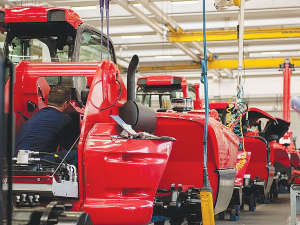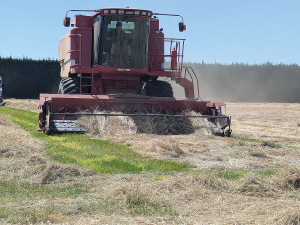The world economy is recovering, but a surge in raw material prices is pushing production costs to all-time highs.
This is likely to have serious consequences for the agricultural machinery sector, which largely uses ferrous and plastic materials.
The latest data on the world economy sees experts forecasting a jump in GDP from -3.9% in 2020 to +5.2% in 2021. Meanwhile, a robust recovery in world trade is expected to go from -6.9% last year to a substantial +8.6% this year.
Already dealing with logistics issues – such as soaring container costs and significant delays in shipping, alongside reduced production because of Covid-19 safe distancing strategies – now shortages of raw materials and their rising costs is also becoming a major issue.
The average price of materials for industry was up 22% in March compared to January 2020. This is particularly acute in the mechanical engineering sector, with price increases of more than 40%. In Europe, steel prices reached an all-time high in March, with particularly high prices for rolled products (HRC and CRC) up 70-80% compared to pre-Covid levels. As for plastics, Europe recorded a 45% increase in the cost of ethylene and 121% increase in the cost of polyethylene in the first quarter of the year.
This looks like creating a major headache for tractor and machinery manufacturers, given – in the case of a tractor – ferrous components make up 75% of the total materials.
FederUnacoma, the federation of Italian manufacturers, says in tractor manufacturing there are an average of 1,700 components – 75% of which are derived from iron (cast iron, steel, metal tubes), plus 5% of other metals such as copper.
“This means the metal components account for around 80% of the total materials used in the manufacture,” it states. “Of the remainder, more than 10% is covered by plastic materials such as cabin linings, guards and covers – with a further 5% in rubber polymers such as tubes, seals and gaskets.”
Speaking with New Zealand importers and distributors, they report good results from the recent regional field day events. This means that forward or indent orders with their supplier factories are in place for spring deliveries at current pricing.
However, they warn that suppliers are starting to open discussions about price rises at a much earlier stage than in previous years. The narrative is around reduced availability because of lower output, component availability and increasing raw material costs.


















